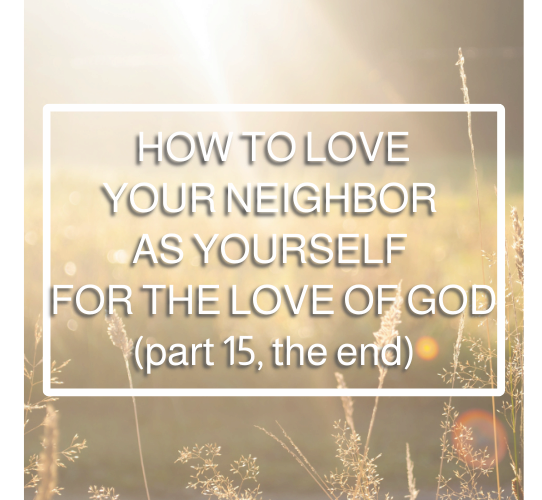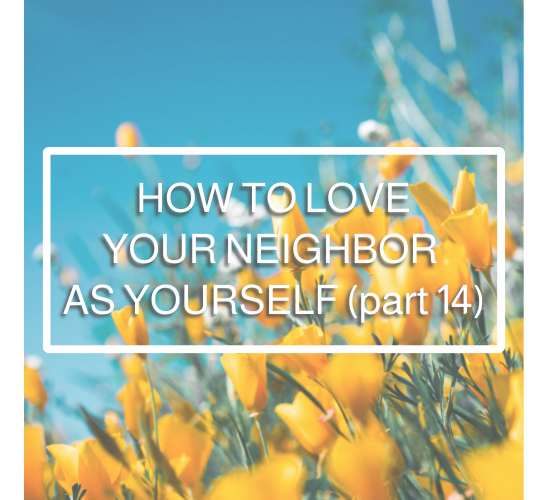WORTHY! To Receive Wealth
Worthy is the Lamb who was slain to receive...wealth!
Jesus deserves “wealth.” What does this mean?
The only other place this word is used in Revelation is in 18:17, "...in a single hour all this wealth has been laid waste. It is helpful, however, to read the preceding context:
9 And the kings of the earth, who committed sexual immorality and lived in luxury with her, will weep and wail over her when they see the smoke of her burning.
10 They will stand far off, in fear of her torment, and say, "Alas! Alas! You great city, you mighty city, Babylon! For in a single hour your judgment has come."
11 And the merchants of the earth weep and mourn for her, since no one buys their cargo anymore,12 cargo of gold, silver, jewels, pearls, fine linen, purple cloth, silk, scarlet cloth, all kinds of scented wood, all kinds of articles of ivory, all kinds of articles of costly wood, bronze, iron and marble, 13 cinnamon, spice, incense, myrrh, frankincense, wine, oil, fine flour, wheat, cattle and sheep, horses and chariots, and slaves, that is, human souls.
14 "The fruit for which your soul longed has gone from you, and all your delicacies and your splendors are lost to you, never to be found again!"
15 The merchants of these wares, who gained wealth from her, will stand far off, in fear of her torment, weeping and mourning aloud, 16 "Alas, alas, for the great city that was clothed in fine linen, in purple and scarlet, adorned with gold, with jewels, and with pearls! 17 For in a single hour all this wealth has been laid waste." (Rev 18:9-17a)
What do we learn about "wealth" in Revelation? This wealth encompasses everything from necessary produce to luxury items to the systems of trade and commerce that allow wealth to be turned into commodities, traded, and lived off, or lived for (vv. 11-13).
It is what we get at the grocery store and when we buy gifts and when we spend birthday gift-cards. It's also the movies we watch, the media our monthly subscription fees helped produce, and the podcasts our participation helps sell ad-spots to fund. It's also the infrastructure, the road ways and underground wires and fuel subsidies and credit card companies and multi-national banks. It's what's in your wallet. It's what you do with what's in your wallet. It's what makes what's in your wallet capable of doing anything.
All this belongs to Jesus. He alone deserves it.
But back in Revelation 18 we observe a disturbing fact. The wealth—i.e. all wealth—which ought to be employed for Jesus is harnessed to the “whore of Babylon.” It is selfishly kept and horded. It is spent on self-indulgences. It is used to harm others. It is reinvested in the pursuit of power and more wealth.
Great judgment is coming upon this system. All this wealth will be lost. And the loss of it all will be cause for celebration in heaven. The king's and merchant’s grief will be mocked (Rev 18:14).
How can we give our wealth to Jesus in such a way that acknowledges this deep problem with wealth in our world?
First, we must repent. We must disentangle our wealth from Babylon. From Babylon’s goals. From Babylon’s means. From Babylon’s values.
Christian economic practices are different from capitalism and communism. Both of them are worldly philosophies that Christians baptize by idealism or by expedience. We must be holy, different, other. We are not merely consumers of goods, but we are property owners. We believe in wealth and we believe in radical hospitality. We believe in “sacrificial giving” and in wise investment and entrepreneurship. The Spirit always leads us down the deer track of a third-way. What we do with our money needs to be sensitive to, alert to, and separate from the ways of the Babylon-system of exploitation, consumption, hoarding, and ruin. We should ask of our purchases, their production, our work, and our waste, “Does this love my neighbor?” If it doesn’t, then it doesn’t love God or serve Jesus.
Second, then what is the right way to interact with our wealth and the wealth-systems of this life in a way that honors Christ?
To begin, we must admit that we have wealth. We have the means of production and we have the produce. It might be a widow’s mite or a magnate’s mine. Both are wealth; both are for Jesus. If we think that we do not have anything, then we will withhold from Jesus His due. We must begin by honoring the abilities, resources, savings, and wealth-creation ideas and opportunities that we have.
But also, it means we put our wealth in His hands. We give. Here are some examples of things God’s people give to in the Bible. First, everyone—cover-to-cover—gives to the maintain their local faith-serving apparatus—i.e. their local synagogue, the priests, the temple, and in the New Testament, their local church. Second, they give to their neighbors-in-need. Hospitality is the primary expression of this, especially the way Jesus describes it in Luke 14:12-13: it shifts wealth from one home to another in the form of lunch, but in a way that communicates deep fellowship and love rather than faceless charity. They also give to mission work through their local church. This includes famine relief in Jerusalem (1 Cor 16:1-3) and the needs of Paul’s mission-cohort (Phil 4:10-15). God’s people recognize that their resources are God’s resources loaned to them for their joy and for other’s welfare. Generosity is one of the natural forms this take. As Paul reminds us in 1 Corinthians 4:7, “What do you have that you did not receive?”
And it means we put it to work for Him. In short, we invest (cf. Mat 25:24-27). God’s people are not just check-writers, coin-droppers. We dream and pray and plan and patent and sell and manage and lead and brand and advertise and book-keep. We pay taxes and payroll and sponsor local parks-and-recreation programs—because it’s good and good business sense. We work hard where we work. We hustle. We don’t hustle like slaves, like the world does. We honor our boundaries; our wealth system is ruled by the God of Sabbath, not the gods of the pyramids. But doggonit, we know how to work. We grow. We adapt. We seek to prosper and to bring many others along with us. If Jesus gives us influence and ability, of course we use it for Him. It’s His.
And it means we employ it for His goals, His heart. We use it with gratitude—He wants us to see His love in our material provision. We use it for His glory—He wants others to see His love in our material provision (2 Cor 9:11).
God is not most interested in money; He is most interested in joy. And joy can only be found in Jesus. What part does wealth play in that? It can draw our hearts to thank Him just as it can draw our hearts away in idolatry and anxiety. And it can be used to turn other’s hearts to praise Him, just as it can be used to push them away with layers of exploitative luxury.
Jesus is worthy of wealth. Right now, Babylon chews most of it up, slopping and ruining and destroying in gross indulgence. Someday Jesus is going to pile that wealth up and put a match to it. It’ll all glorify Him then. But how much sweeter now for us to live our worlds of wealth for Him? To live hand-in-hand with the One to Whom it all belongs anyway?
Photo by Dmitry Bayer on Unsplash











